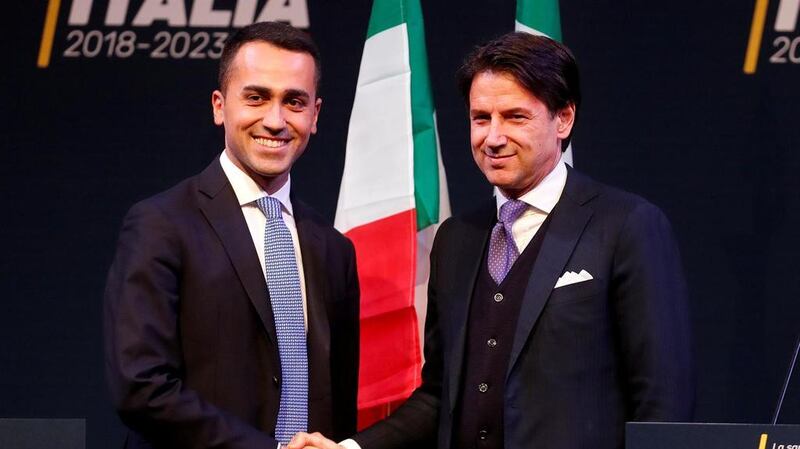Italy’s president on Wednesday approved the nomination as prime minister of little-known lawyer Giuseppe Conte, who said that he wanted his government to “confirm Italy’s place” in Europe and the rest of the world.
“The president of the republic has tasked me with the role of forming a government,” Mr Conte said to reporters after leaving a nearly two-hour meeting with president Sergio Mattarella.
Mr Conte must now finalise his cabinet, which has been the subject of days of tough negotiations between the anti-establishment 5-Star Movement and the far-right League coalition that makes up the proposed government.
The list of ministerial candidates must then be endorsed by Mr Mattarella before it can seek parliamentary approval.
Mr Conte’s appointment could bring an end to more than two months of political uncertainty in the eurozone’s third-biggest economy.
The 5-Star-League alliance’s eurosceptic stance has alarmed senior European officials, but Mr Conte sought a more conciliatory tone towards Europe when speaking to journalists at the presidential Quirinal palace.
“I’m aware of the necessity to confirm Italy’s place, both in Europe and internationally,” he said.
“My intent is to give life to a government of the people that looks after their interests. I’m ready to defend the interests of Italians in Europe and internationally, maintaining dialogue with European institutions and representatives of other countries.”
Meanwhile, the EU executive warned Italy’s incoming government on Wednesday it should go on cutting the country’s heavy public debt, as EU officials pointed to market pressure as a more effective form of euro zone discipline than finger-wagging from Brussels.
In publishing annual recommendations for economic policy in the bloc’s 28 member states, the European Commission did not refer to the appointment of a new coalition in Rome that is sceptical of euro zone strictures. EU officials were at pains not to appear to be publicly interfering in Italian politics.
But the executive sounded its clearest warning yet that any risk of financial instability in the euro zone’s third-biggest economy could spill across the single currency area, which is still licking wounds inflicted by sovereign debt crises in several other much smaller countries, notably Greece.
“Given its systemic importance, Italy is a source of potentially significant spill-overs to the rest of the euro area,” the Commission said in its report, which also highlighted risks for the Italian economy from backsliding on efforts to cut state pension costs and an end to the bloc’s easy money policies.






